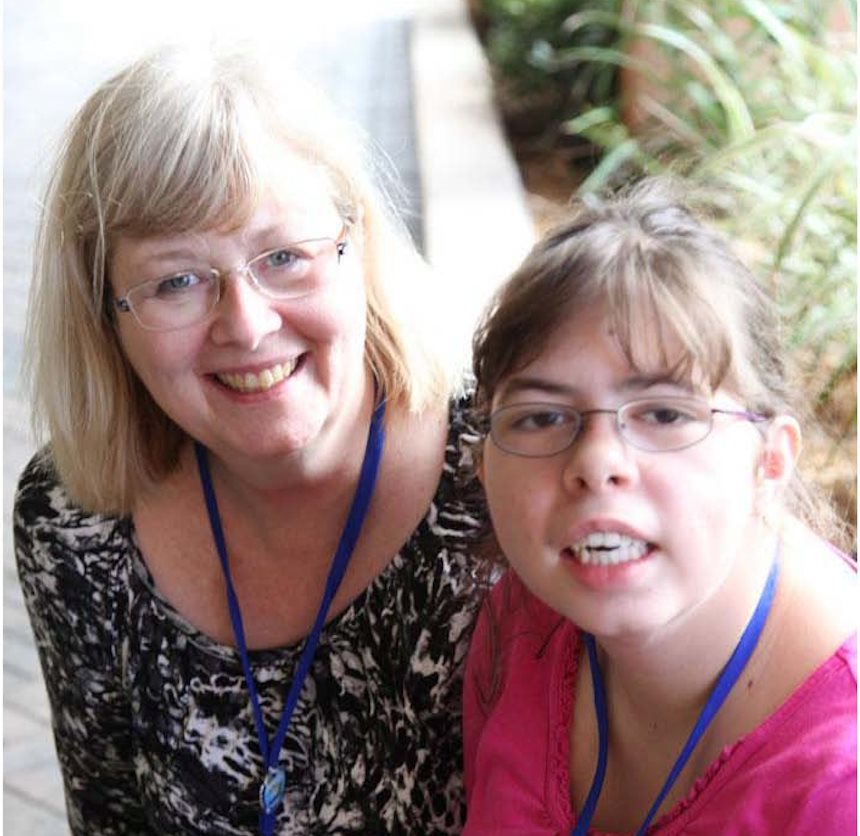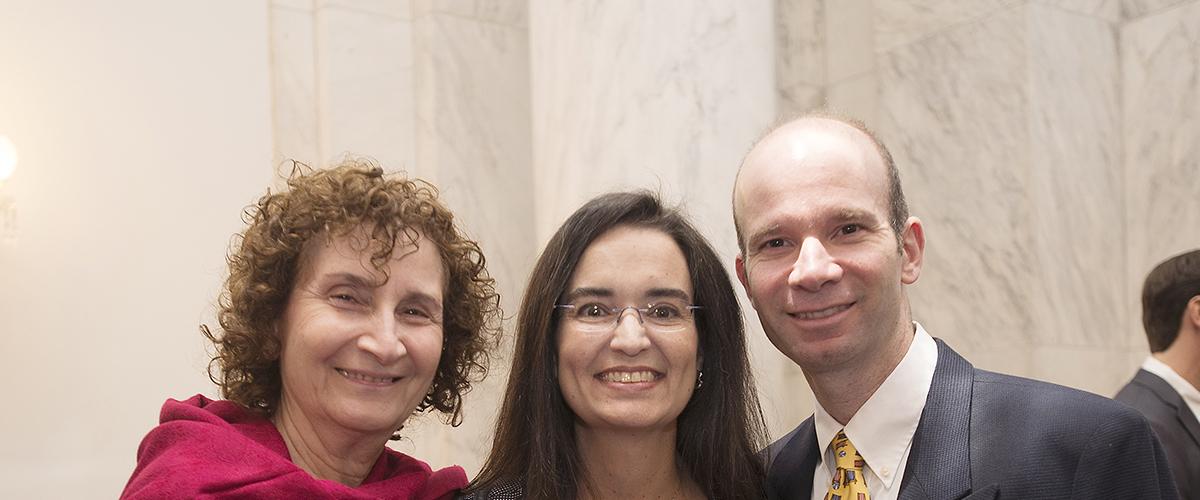
Renee Bux, now 17, was adopted at the age of three months. She had been hospitalized right after birth and diagnosed with “failure to thrive,” but then began making steady progress. Her mother, Joy, recalls that, although they knew their baby had a slow start, “We had fallen in love with Renee, and knew immediately that she was part of our family."
Joy noticed delays in Renee’s development that she now knows were typical of myotonic dystrophy. "After bringing Renee home, she was monitored by her pediatrician who eventually recommended she be seen by a developmental specialist to begin early intervention," Joy says. "Although Renee always hit her developmental milestones, she was consistently on the outside of the parameters."
Other than a diagnosis of "global developmental delay," there was no explanation for the challenges Renee experienced. At age 3, she began receiving early childhood services through her school district. Her pediatrician also referred them to a geneticist for further testing. After meeting Renee and hearing her history, the geneticist ordered blood tests and Renee finally received a diagnosis of DM.
"It was very devastating to hear the diagnosis,” says Joy. "But Renee was in the care of some amazing people in her early childhood program. I called her teacher and she told me, 'At least now you know. You can get the right care.' Hearing that from someone who was so crucial to Renee’s development made such a difference. It reset my thinking."
Joy went on to explain that every parent of a child with special needs goes through grief, denial, and acceptance, but the ultimate focus is always on helping your child reach his or her potential — even if you don’t always know what that is.
"You want your child to accept who they are,” Joy says, “Renee is a sweet and loving girl who loves to laugh and learn. She has a great deal of faith and understands that we are all different in some way. She accepts that she has DM, knows she can’t do everything as easily as others can, and is open to learning ways to compensate. The other day at breakfast, she said, So mom, what disability do you have? I thought that was so cool."
Over the years, Renee has received a lot of support and care from doctors, therapists, educators, family, and friends. In her early years, the focus was on learning about DM, providing therapy, discovering and utilizing the right services, and offering emotional support. Social situations, in particular were difficult, as most young children don’t understand Renee’s differences. Her family spent a lot of time facilitating social interactions so Renee and her peers could be comfortable with each other.
While Renee has learned a great deal about social interaction, it’s still difficult for her to form typical teenage friendships due to her cognitive and emotional delays. She recently joined a small social group that meets once a month — without parents — and she looks forward to that independent time. Now that Renee is moving into early adulthood, Joy is focused on helping her navigate the later teen years and prepare for her future.
"I have to focus on her potential and the discovery of her life’s path: education, independent living, employment, and self-determination," says Joy. One way that has taken shape is through the development of a transition plan, which is part of Renee’s special education services.
In addition to helping families plan ahead, this transition plan gives students a chance to begin discovering their likes and dislikes, setting goals, and thinking about where they want to work and live. It encourages them to be part of creating their future. Renee’s career choices change often, but she’s beginning to articulate some areas of interest, such as working as a teacher, in a library, or with technology. Joy acknowledges that some of Renee’s dreams are more realistic than others but she wants to support Renee’s vision by helping her overcome her challenges and capitalize on her strengths.
"In the end," Joy says, "I want her to have what most parents want for their children — a job they enjoy, social interactions with friends, a comfortable place to live, and family and friends who love her."

